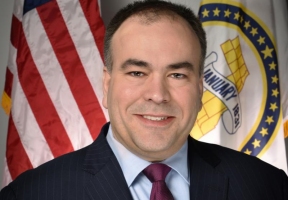By: Cook County Assessor Fritz Kaegi
 Last summer, residents of Cook County’s south and west suburbs got a shock when they received their property tax bills. The typical homeowner saw their tax bill go up by 20%, while many experienced spikes far higher than that. Meanwhile, taxes went down for the average commercial property. This problem is not isolated to one area of Cook County. While some towns and villages have experienced larger tax increases than others, residents in every part of the county, from the northwest suburbs to the far reaches of the Southland, have seen unsustainable bill spikes.
Last summer, residents of Cook County’s south and west suburbs got a shock when they received their property tax bills. The typical homeowner saw their tax bill go up by 20%, while many experienced spikes far higher than that. Meanwhile, taxes went down for the average commercial property. This problem is not isolated to one area of Cook County. While some towns and villages have experienced larger tax increases than others, residents in every part of the county, from the northwest suburbs to the far reaches of the Southland, have seen unsustainable bill spikes.
At the Cook County Assessor’s Office, we have just released a new tool to show the scale of the problem. It’s available at https://www.cookcountyassessor.com/historical-analysis-property-tax-spikes-2020-2023. From 2020 to 2023, this data shows that nearly a quarter of a million households in Cook County saw a 25% increase in their property tax bill from one year to the next.
And if you dig into the details, the results are even more bracing. In many parts of the south suburbs, such as Richton Park and Chicago Heights, more than half of all homeowners had a 25% bill spike. In Calumet City, nearly 4,000 homeowners collectively paid $9 million more in property taxes due to these increases. The tool allows you to explore this data for yourself by municipality, township, state legislative district, and Chicago ward.
But we didn’t just put together this data because we think it’s interesting. Rather, it demonstrates what many homeowners already know: The property tax system in Cook County does not protect residents from large increases in their bills. In a strained economy where people budget for modest tax increases, I think that’s fundamentally unfair.
For that reason, my office helped craft legislation earlier this year to protect against property tax bill spikes. It would create a “circuit breaker” program at the state level. As the name suggests, this program would function like a circuit breaker in your home, stepping in to assist when there’s a large surge.
The legislation, filed as SB1978 by Sen. Patrick Joyce and HB3808 by Rep. Justin Slaughter, would credit homeowners for some or all of the change in their taxes. That keeps increases at a manageable level, ensuring that nobody is hit with a tax bill that’s much higher than their old one.
When I attended a dozen town halls in the south suburbs last year, I heard from countless residents worried about dipping into their hard-earned savings or even being forced to move out of their homes. A long-standing problem is becoming a crisis. There’s still time to prevent it, but we must move to create safeguards now. The circuit breaker program is one such safeguard. If you think protecting homeowners from property tax spikes sounds like a good idea, I encourage you to get in touch with your local lawmaker and tell them to support this legislation.









